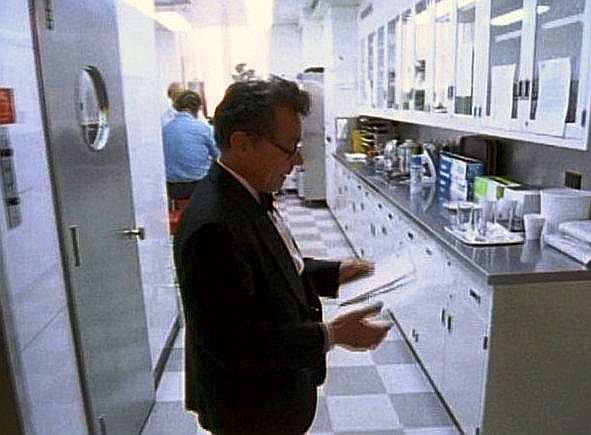
I learned this today. Butlers started out as the person who was in charge of the alcoholic drinks for a household.
The word “butler” came into English from the Anglo-Norman word “buteler”, which came from the Old Norman “butelier”. This in turn came from the French “botellier”. The French word came from the medieval Latin “buticula”.
There are two words that could have led to the word “butler”, but they both have a similar origin.
Before the invention of glass bottles, wine would have been kept in earthenware vessels or wooden barrels. These were expensive items, and they were only looked after by the most trusted slave in the household. After the invention of the glass bottle, this slave became known as “the person in charge of the bottles”, botellier. The botellier would have great responsibility because the wine was one of the most important things in the house.
Another way of looking at it is that the word comes from “buttery”. The casks of wine were kept in a cellar. The medieval Latin for bottle was “buticula”. This is where we get the English word “butt”, meaning barrel or cask. These casks of wine were kept in a cellar that became known as the “buttery”. The “butler” could have been the person who was in charge of the “buttery”. He would have to make sure the butts of wine were kept safe and ready for use. It was an important job.
Whatever the linguistic origins of “butler”, it does appear that they all signify control of the family’s alcohol. The person would be in charge of buying. keeping, and serving the wine. A large part of a household’s income would be spent on alcohol, so the butler would be in charge of a lot of money. As the world shifted from barrels to glasses, the price of wine rose, and the job had even more responsibility. The wine was a very valuable asset and only the most trusted servant would be allowed to handle it.
From the 1500s onwards, the butler slowly started to add more duties to their workload. They slowly took over from the steward of the house and became the head of the household. The butler had a lot of responsibility and a relatively large amount of power. They were at the top of a very strict household hierarchy. It was a very coveted job. The butler would have the highest salary of the household staff and they would also receive “gratuities” from vendors who wanted to sell goods to the house. A butler would typically have worked their way up from the lower servant positions and they would be middle-aged or older. They were almost always men.
The role of the traditional butler probably peaked in the early 20th century. The Industrial Revolution created a new wealthy class that suddenly needed servants. It also drew a lot of poor people from the countryside to the city who needed work. There was a large workforce that could be employed as domestic help. And an averagely rich family would need a fairly large staff to keep the house running.
The start of the 20th century saw the decline in the use of servants and the butler. The invention of a lot of labor-saving devices meant it became less and less difficult to manage a household. Then World War 1 killed a lot of men, and many women entered the labor market. It became unglamorous to work as a servant. As households shrank, there was no need for a butler. After the Second World War, it became nearly impossible to hire household staff and almost completely unnecessary.
However, just because most rich families no longer needed a household staff to run their large houses, it didn’t mean that the role of butler died out. These days, butlers have restyled themselves as a kind of concierge. They are employed by the super-rich and they are in charge of the estate and household of staff, but, more than that, their job is to smooth the way for the person they work for. They get things sorted. There are a lot of schools teaching the skills of buttling and it is a growing profession. There are 10,000 butlers currently working in the UK and the biggest market is in China. The rich in China like to have a European butler as a status symbol.
So, the job of butler started as the person who was in charge of a household’s wine. This would be kept in bottles or wine butts. The word butler could come from “boutellier”, the person in charge of the bottles, or “buttery”, the place where the wine butts were kept. In the 20th century, labor saving devices meant that people no longer needed servants and domestic staff all but disappeared. These days, the super-rich hire butlers to make their lives easier and as a status symbol.
Sources
https://www.gq.com/story/rich-billionaires-butlers-servants
https://ani-izzy.com/2012/02/08/poor-crawleys-a-study-of-downton-abbeys-staffing-woes
https://www.americanbutlerschool.com/butler-training/butler-history/
https://www.magnumsacademy.com/2013/05/02/history-of-butlers/
https://www.linkedin.com/pulse/evolution-butler-service-sandeep-pandey/
http://www.literary-liaisons.com/article046.htm
